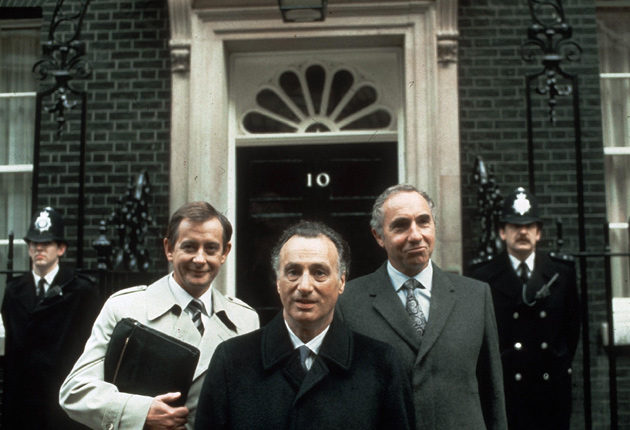Speaking to Egyptian secular and liberal activists and political leaders, there is a consensus that nobody should get into a deal ( as advised by the Americans and our British government) with President Mohammed Morsi and his Muslim Brothers party and/or other Islamists like Salafis. Egyptian secular and nationalists politicians and activists are wary of Morsi’s ability to double-cross them and using the deal or “dialogue to accommodate people’s’ demands ” ( as advised bt President Barak Obama) just to buy time then welsh back on his agreement as he did last year once the momentum of people in the streets wears-off.
Egyptian politicians of all shades ( other than the Islamists ) have their reasons not to follow President Obama’s advice of dialogue or sharing power with Morsi ( which is also our Foreign Office’s advice). Beside their distrust of the Americans (not because they conspire against the Egyptian people, but because of their foolish assessment of the situation and their repeated errors in thinking they can tame ‘moderate’ islamists. . Also see more dealing with Islamists ) they learnt last year’s lesson when Morsi welshed back on his promises and grabbed power.
Islamists ( of all trends and different schools of thought) believe in the concept of Taqiyah ( or Takkiah) as means to an end. It is basically an Islamic justification of telling lies to an ally or partner you distrust and you see him as kafir ( non Muslim or a Muslim who lost his faith) and it will be justifiable to welsh back on the agreement or a deal the Muslim struck with him. Five of the political trends I spoke to mentioned this as a reason not to trust Morsi or follow Mr Obama’s advice. They are almost certain that once they agree with him and share power, it is very likely he would stab them in the back and even use them to get rid of the army leadership which he sees as the main block stopping him Islamising the country.
The other reason is the secular political opposition leaders (like Dr Mohammed al-Baradai, or Amr Mousa, or Ayman Nour of al-Ghad Party) own calculation. They were taken by surprise at the sheer scale of the street demonstrations which started 48 hours before June 30 day for which they called the protest. They realise it was the people’s momentum as phase-2 of the revolution, a momentum which they DID NOT lead or control. Their calculation is simple: if they accepted a deal with president Morsi or shared power then there is a real possibility the people demonstrations on the streets ( which approached 20 million nation wide Monday) would reject them and the deal since the slogan was ‘Irhal’ or go away, the Egyptian expression for “resign and don’t stand again”.
The other reason in their calculation is that the Muslim Brothers are not likely to carry their threat to go for a full-scale confrontation, even with the b the Palestinian terror group Hamas support and the armed men they sent ( which prompted the army to give the ultimatum after they fired on demonstrators from the MB HQ Sunday); such confrontation which would see the people joining police and army would finish them off or at least destroy their ability to influence politics inside Egypt for years to come.
There is also a split within the Muslim Brothers leadership. The Muslim Brothers’ International Organisation MBIO advise compromise and sacrificing Morsi’s position to keep the regional gains they made ( In Gaza which they control through Hamas, Tunisia, Libya and winning French, British and US backing in supplying arms to Syria rebels, giving them hope they’d soon control Syria too). The MBIO want the Egyptian Muslim Brothers to withdraw from the political seen at this stage to focus on winning majority seats in next parliamentarian elections and use their vast wealth ( and Qatari money) to provide welfare and economic help to win hearts and mind as any post-Morsi’s administration is expected to face massive economic challenges .
Meanwhile the hardliners in the Irshad ( the supreme guide office) with the Tanzhime Siri ( the underground militia) and Hamas want to make stand calculating that the Army will not fire on civilians, and fear if they lose this time they’d be soon behind bars especially if police managed to gather evidence implicating their leaders in criminal activities in the past 18 months or so…
on the balance of probabilities; the opposition will reject Morsi’s offer of dialogue or power-sharing while the stage is set for a confrontation. It is more likely that Mosri and the Islamists will loose this round, but expect losses on both side.
end
